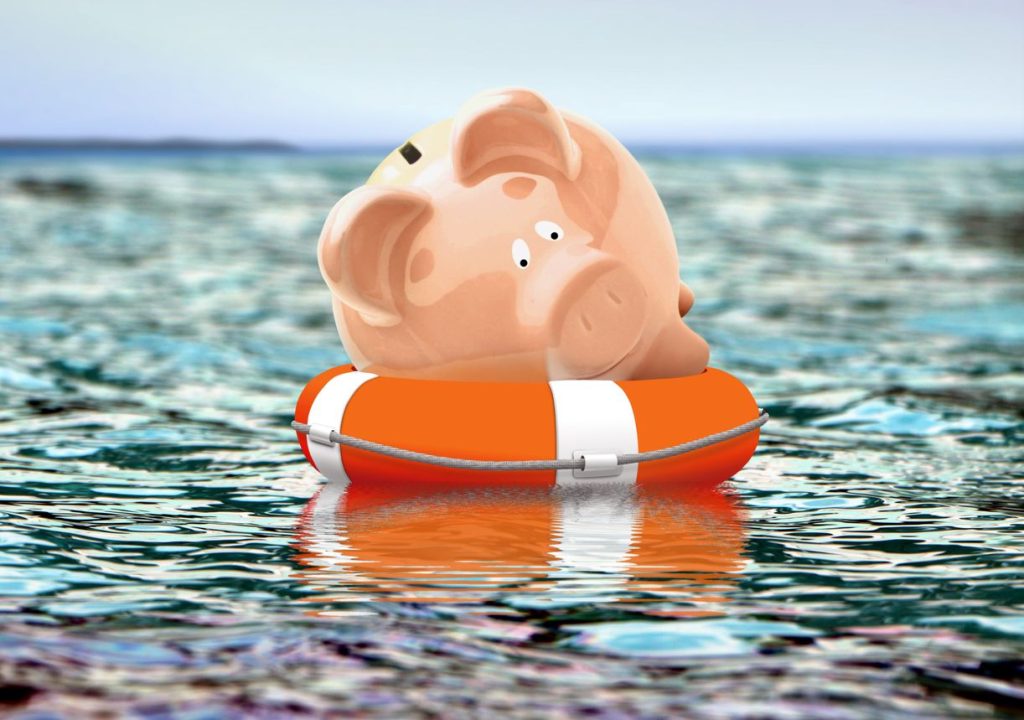
Living paycheck to paycheck can be stressful and leave you feeling like you have no room to save for the future. However, building an emergency fund is an essential step in securing your financial future. Emergency funds can help you avoid debt and stay afloat during difficult times such as job loss or unexpected expenses. Here are some tips on how to build an emergency fund when you’re living paycheck to paycheck.
Determine Your Monthly Expenses
To begin building an emergency fund, you need to know how much money you spend each month. Make a list of all your expenses, including rent, utilities, food, transportation, and any other bills. Be sure to include any irregular expenses, such as annual car insurance payments or seasonal expenses.
Here are some free resources that Canadians can use to determine their monthly expenses:
- Budgeting apps: Budgeting apps are abundant and accessible for free on both Android and iOS platforms:
- Mint: https://www.mint.com/
- Wally: https://wally.me/
- PocketGuard: https://www.pocketguard.com/
- Budget Calculator: A budget calculator is a tool that helps individuals or households estimate their monthly expenses and plan their budget:
- Financial Consumer Agency of Canada’s Budget Planner: https://itools-ioutils.fcac-acfc.gc.ca/BP-PB/budget-planner
- RBC’s MyAdvisor Budget Calculator: https://www.rbcroyalbank.com/personal-banking/advice/myadvisor/budget-calculator.html
Calculate Your Monthly Income
Next, calculate your monthly income. This includes your salary or wages, any side hustles, and any government assistance you may receive. Subtract your expenses from your income to determine how much money you have left over each month.
Set a Realistic Savings Goal
Once you know how much money you have left over each month, set a savings goal. A general rule of thumb is to save three to six months’ worth of expenses, but this may not be feasible for everyone. Aim to save at least $1,000 initially, then work your way up to a larger amount.
Here’s a link to an online calculator that you can use to determine your emergency fund savings goal: https://www.getsmarteraboutmoney.ca/calculators/emergency-fund-calculator/. This calculator takes into account your monthly expenses and your level of comfort with risk to give you a personalized savings goal for your emergency fund.
Cut Back on Expenses
To free up more money for savings, look for areas where you can cut back on expenses. This may mean cutting back on takeout or entertainment expenses or finding ways to reduce your utility bills. Consider consolidating debt or negotiating with creditors to lower your monthly bills.
Here are some ways you can cut back on expenses:
- Cut down on eating out: Eating out can be expensive, so consider cooking meals at home instead. Meal planning and buying groceries in bulk can help you save money on food expenses.
- Cancel subscriptions: Evaluate your monthly subscriptions and consider canceling the ones you don’t use or need. This could include magazine subscriptions, streaming services, or gym memberships.
- Reduce transportation costs: Consider taking public transportation, carpooling, or biking instead of driving alone to work. This can help you save money on gas and maintenance costs.
- Shop smarter: Look for deals and coupons when shopping for groceries or other essentials. Buy generic brands instead of name brands, and avoid impulse purchases.
- Lower utility bills: Use energy-efficient appliances and turn off lights and electronics when they’re not in use. Consider using a programmable thermostat to adjust your home’s temperature when you’re not there.
- Negotiate with service providers: Contact your service providers (such as cable or internet companies) and try to negotiate lower rates or switch to a cheaper plan.
Automate Your Savings
To ensure that you are consistently putting money into your emergency fund, automate your savings. Set up a direct deposit into a separate savings account or use a budgeting app to automatically transfer a set amount of money each month. By automating your savings, you will be less likely to spend the money you intended to save.
Here are some more examples of how to automate your savings:
- Set up a recurring transfer: Most banks and credit unions allow you to set up automatic transfers from your checking account to your savings account. Set up a recurring transfer to occur on your payday or another day that works best for you. This way, you can be sure that a portion of your paycheck goes directly into your emergency fund each month.
- Use an app: Many budgeting apps, such as Mint or Acorns, allow you to set up automatic savings transfers. You can choose the amount and frequency of the transfer, and the app will do the rest.
- Set up a savings plan with your employer: If your employer offers a payroll savings plan, sign up for it. This plan allows you to contribute a portion of your paycheck directly to your emergency fund or other savings accounts.
- Round up your purchases: Some banks and apps allow you to round up your purchases to the nearest dollar and transfer the difference into your savings account. For example, if you spend $4.50 on a coffee, the app will round up to $5 and transfer $0.50 to your emergency fund.
- Use cash-back rewards: Some credit cards or shopping apps offer cash-back rewards that can be directly deposited into a savings account. You can use these rewards to build up your emergency fund without even thinking about it.
By automating your savings in one of these ways, you can make sure that you are consistently putting money into your emergency fund without having to actively think about it.
Use Windfalls Wisely
When you receive unexpected income such as a bonus or tax refund, use it to boost your emergency fund. It can be tempting to spend windfalls on luxuries, but using them to increase your emergency fund will provide greater financial security in the long run.
Stay Motivated
Building an emergency fund takes time and dedication. Stay motivated by tracking your progress and celebrating milestones along the way. Consider setting up a visual tracker or finding an accountability partner to help you stay on track.
In conclusion, building an emergency fund is an essential step in securing your financial future. By following these tips and making small changes to your spending habits, you can start building your emergency fund today, even when living paycheck to paycheck. Remember, the key is to start small and be consistent.






During these times it is definetly important to build and have an emergency fund, especially when living pay check to pay check!
“Everything Finance” on Wealth Solutions Hub delivers an authentic and practical guide on building an emergency fund while living paycheck to paycheck, offering realistic strategies and empowering individuals to take control of their finances and secure a stable future.